✯✯✯✯
(This review contains heavy spoilers. Not kidding: I literally start by talking about the ending. If you haven’t seen this movie yet, give it a shot; it’s a great time and worth seeing blind, even if it falls short of the original trilogy’s magic.)
(Last warning…)

“You would have loved it.”
That’s the very last line of Ocean’s Eight, a spin-off of Steven Soderbergh and George Clooney’s Ocean’s trilogy directed by Soderbergh’s close friend Gary Ross, from a script by Ross and Olivia Milch (daughter of TV legend David Milch, who recently made her own directorial debut with the Netflix teen comedy Dude). It’s said by Debbie Ocean (Sandra Bullock), drinking a martini at the grave of her brother Danny, the dapper con-artist hero of the original films.
Oh, he’s probably not dead. That’s the occupational hazard of being born into a family of thieves; any news of your demise tends to be greeted with a jerk-off motion unless you leave an intact, visually identifiable body, at which point you’ll be granted the courtesy of an eye-roll. When Debbie first visits Danny’s tomb, she says, “You better be in there.” Later on, Danny casually comes up in a conversation between Debbie and young hustler Constance (Awkwafina): “You sure he’s dead?” “No.” Constance might as well have asked Debbie what she had for lunch. Debbie refuses to take Danny’s death at face value, and why should she? If nothing else, the audience sure isn’t; through three movies, we’ve seen him and his crew run heists like magic tricks, hiding crucial information from us—sometimes even in plain sight. We’ve been trained not to trust anything we’re straight up told about Danny. On a more metatextual level: In a post-Marvel age, who could resist the appeal of a star-studded crossover, or at the very least, a cool little pass of the torch from brother to sister?
And yet it’s resisted, if only for now: Debbie drinks her martini at her progenitor’s grave, salutes him, roll credits. Whether Debbie even accepts that her brother is truly gone at that point is up in the air; given the lack of tears shed, I’d assume she hasn’t. Anyway, this isn’t a story about dealing with grief. This is a story about women stealing cool shit from people who don’t need it and getting even with men who would treat them as disposable pawns in the process. Daniel Ocean is dead, or “dead,” because he has no place in it.
But he would have loved it, says Debbie. And while I come away feeling like the movie was a little too easy and not necessarily “cool” enough for (if I may be so gauche) the Ocean’s brand, I don’t think she’s wrong.
For Ocean’s Eight, we trade in the luxurious, violent history of Las Vegas for the blasé decadence and self-importance of Manhattan’s Upper East Side; more specifically, The Met gala, a parade of celebrities and influencers dining and rubbing shoulders while dressed in the finest offerings from fashion’s biggest names. Like Vegas, there’s a lot about this scene you can criticize, but like its older brother, Ocean’s Eight is happy to keep that criticism in the subtext (if anywhere) and marvel at the glitz and glamour of it all. Even a jaded, fashion-unconscious individual like myself couldn’t help but gawk at the sheer lavishness of it, and the crew is right there with you. “Can’t we just go to this?” asks Amita (Mindy Kaling) during a briefing, ready to walk from a $16.5 million payday. “Do we have to steal stuff?”
Of course they do; not just because there’d be no movie if they didn’t, and—interestingly enough—not necessarily because this is personal for Debbie. As you can guess, The Met isn’t Debbie’s target any more than the Bellagio, Mirage, and MGM Grand were Danny’s targets in Eleven. But whereas Danny’s endgame was to pants Terry Benedict and show his ex-wife that she was with someone who didn’t care about her, revenge on Claude Becker (Richard Armitage), Debbie’s ex-partner/lover who snitched on her the second he started feeling the heat, seems to be a nice bonus rather than the goal. Rather, Debbie and the women she brings in just enjoy the thrill of it, and there’s a lot to be thrilled by, least of all the thrill of getting away with it.
For starters, the cons these women run are pretty close to some of the humdrum truths they live. Sure, there’s twists: Lou (Cate Blanchett) goes from running a nightclub to running the gala’s kitchen. Tammy (Sarah Paulson) puts her logistical expertise as a fence to help organize the gala’s wait staff. But consider Rose (Helena Bonham Carter), a well-known fashion designer who Debbie and Lou recruit by promising to make her problems with the IRS go away. She doesn’t have to pretend to be anyone; she just has to get into the good graces of actress Daphne Kluger (Anne Hathaway) and then do what she was trained to do: dress her for the ball, casually working The Toussaint—a $150 million diamond necklace owned by Cartier—into her wardrobe so it can be stolen right off her neck.
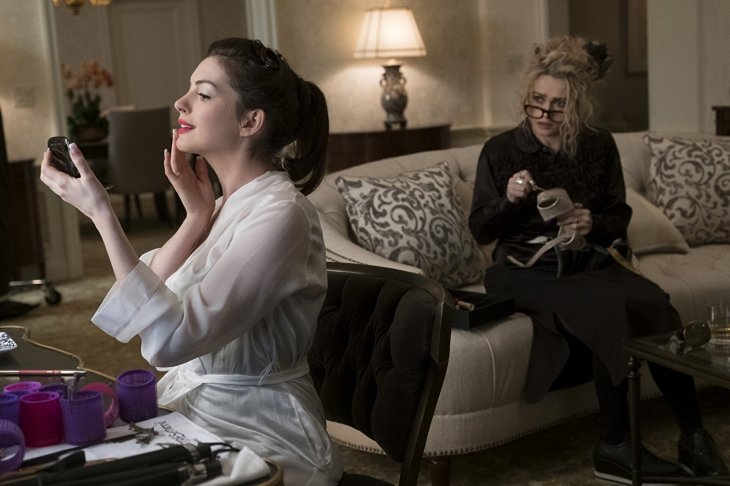
Don’t call it a comeback for Hathaway: She may have gone quiet in recent years but she never stopped killing it whenever she did appear in front of the camera, even delivering one of the great performances of 2017 in Nacho Vigalondo’s Colossal. Here she has an absolute blast lampooning every stereotype of vain, insecure celebrity without ever falling into caricature. This is crucial because when she’s formally drafted into the crew for the third act, it doesn’t feel like it comes out of nowhere; Hathaway cleanly lays the groundwork for Daphne to catch onto the plot and willingly join in, despite not needing the money, because “I don’t have a lot of female friendships.” (And once she’s active, again, her part in the scheme comes down to doing a little acting; namely, continuing her seduction of Claude Becker so she can snap a picture of the piece of necklace Debbie planted on him, crafting probable cause for the cops to pick him up, thus leaving them free and clear.)
Camaraderie was always a key component of the Ocean’s trilogy; consider the sequels, where Danny and his crew regulates against their targets, first because they “broke rule number one [honor amongst thieves],” then because they violated the social contract between those who “shook Sinatra’s hand.” But in a world where “benign sexism” is defined as the otherwise impeccable John Mulaney joking about how there could never be a female Ocean’s Eleven because “two would keep breaking off to talk shit about the other nine,” that feeling of camaraderie resonates more than ever. The script even builds a subtle, perhaps unwitting contrast between the crew’s close bond and their targets, collateral or otherwise. We get a sense of the gala’s vibe of self-importance, antithetical to the concept of camaraderie, through Daphne’s funny anecdote to her table about the weird intricacies involved in meeting the frickin’ Queen of England. Meanwhile, Cartier owns the Toussaint necklace that Debbie’s after; as this excellent Vulture piece by Jen Cheney points out, the necklace was named for a woman, meant for women, but owned a company that is represented entirely by men here—men who, by the way, have locked it in a vault under five feet of concrete, never to be worn or seen by the public. It’s not making them money or giving them credibility, they literally own it just to say they own it. Rose has to practically pull teeth just to convince them to let her dress Daphne in it. In this light, this jewel heist becomes oddly virtuous beyond the usual “likable rich stealing from the unlikable richer” motives that supported the original trilogy.
If I keep comparing Ocean’s Eight to the preceding Soderbergh classic and its underrated sequels, it’s not necessarily because I think they’re impossible to separate. These movies defined “cool” for a generation of moviegoers both casual and hardcore, myself included, and as such, it casts a long shadow. Gary Ross has a tough job here; in creating a spin-off as opposed to a direct sequel, he has to come up with a visual style of his own, but at the same time he can’t just ignore what came before. On top of that, whatever Ross’ feminist bonafides may be, there’s further pressure to justify himself solely on the basis of him being a white guy directing a mainly female cast, while there are dozens of women who have long since proven themselves yet remain invisible because Hollywood is run by assholes. Honestly, I don’t think he pulls it off.
It’s not that he’s a weak director; far from it. He’s perfectly competent, and sometimes competence works. Sometimes competence means you get out of the way and let your actors and your production design do the work for you, and by God, they do the work. Bullock is an ice cold ringleader here, eminently believable as a member of the family Ocean, and the best, most quotable parts of the movie involve her light, playfully flirtatious relationship with Blanchett’s Lou. All eight women have distinct and big personalities, yet the absolute pros playing them never milk them too hard or turn them into caricatures. This is a fantastic ensemble.

But again, that long shadow of Soderbergh’s comes around to eclipse Ross. Ross came up as a writer and producer (he got on the map with Big), and as such, tends to be flexible with his style depending on what the script calls for. Look at his short filmography, side by side; if you didn’t know he directed all of those films, you probably wouldn’t be able to tell. Of course, the flip side of this is that he’s never shown a strong visual sense unless the script specifically called for one. Pleasantville, nakedly allegorical as it was, is a brilliant work with a strong visual conceit that forced Ross to be on his game. The Hunger Games (which Soderbergh shot second unit for) didn’t have such a conceit baked in, but Ross set out to adapt the Young Adult classic as a sort of anti-Harry Potter: a brutal, unsentimental war film that eschewed visual gimmickry to bring us into Katniss Everdeen’s perspective, standing in stark contrast to Francis Lawrence’s work in the later films. If he brings a strong point of view to the set or the editing bay, he’ll make a film sing.
Apparently his point of view for Eight was “Be like Soderbergh, but not too much,” and it’s a half-measure of a half-measure. He apes the surface elements of the work, including late 60s / early 70s-inspired transitions that feel jarring, like they were rendered in iMovie. He doesn’t seem to have Soderbergh’s sense of timing or cool; he’ll use cuts and zooms to emphasize a joke or reveal where Soderbergh would let the viewer find it for themselves. Oddly enough, you can see where Ross would be onto something with the approach: Daniel Pemberton (coming up fast and hard in the film composition scene with his killer scores for The Man From U.N.C.L.E., King Arthur: Legend of the Sword, and All the Money in the World) takes a similar tack with a score that echoes David Holmes’s work for the original trilogy, coming off like an upstart younger sibling. Pemberton doesn’t get nearly as weird or creative with it, but goodness gracious does the music ever slap. Still, visually speaking, Ross can’t quite rise above competence, and being expectant of a certain level of visual panache in an Ocean’s film, it holds the whole thing back. As much fun as I was having watching this cast work in that environment, I’d occasionally wonder what Michelle MacLaren, Anna Boden / Ryan Fleck, or even Olivia Milch herself would do with this material.
It’s a shame, but it’s far from a tragedy. Standing toe-to-toe with the Ocean’s trilogy is an accomplishment, and while Eight doesn’t quite go the distance, it’s a hell of an entertaining effort that easily justifies its own existence through its great cast and breezy, occasionally observant script.
He would have loved it.
Watch the trailer right here.
All images via Warner Bros. Pictures
Directed by Gary Ross
Screenplay by Gary Ross & Olivia Milch; Story by Gary Ross; Based on characters created by George Clayton Johnson & Jack Golden Russell
Produced by Steven Soderbergh and Susan Ekins
Starring Sandra Bullock, Cate Blanchett, Anne Hathaway, Helena Bonham Carter, Sarah Paulson
Release Year: 2018
Running Time: 110 minutes
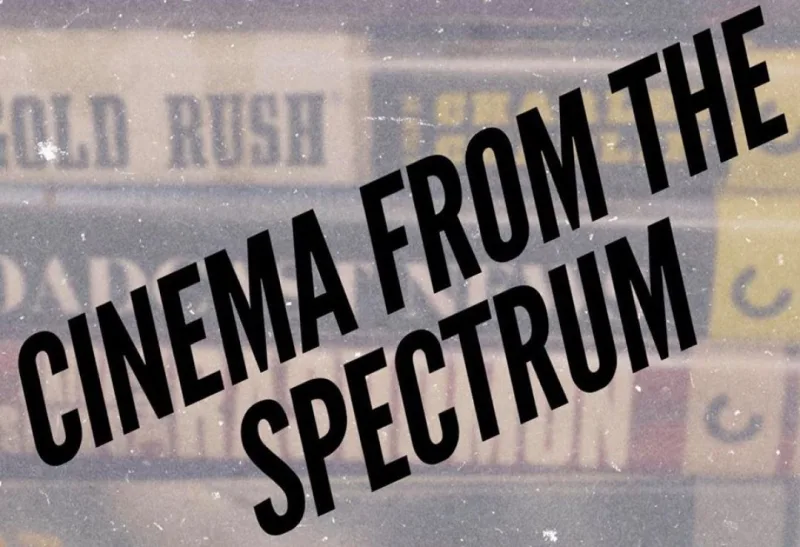


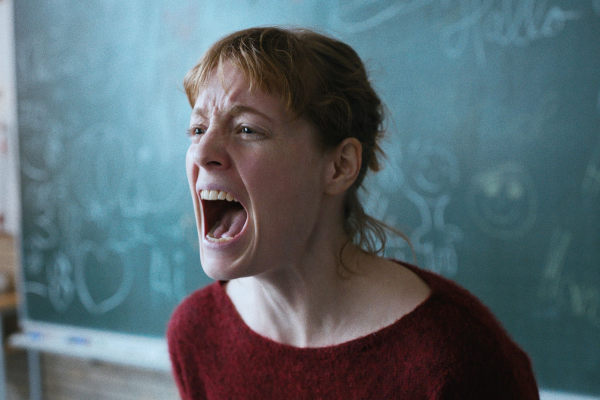
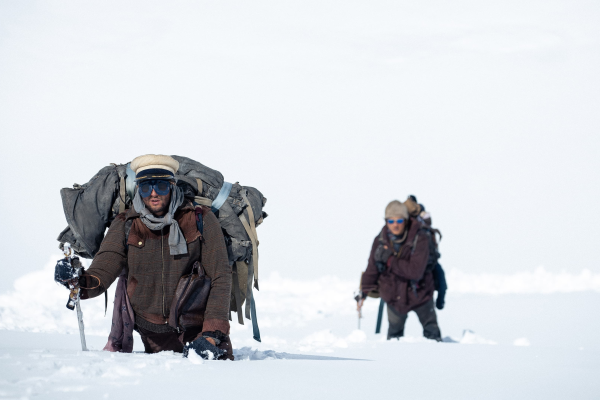
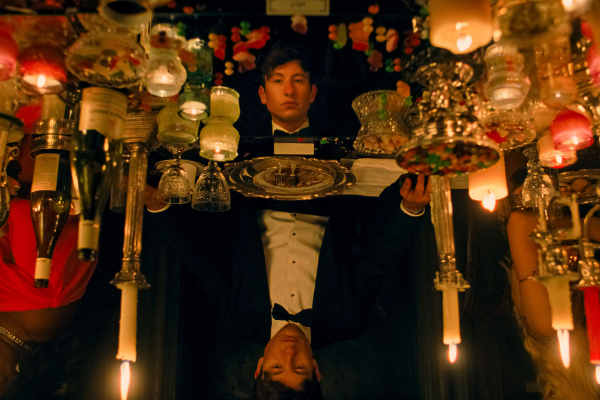
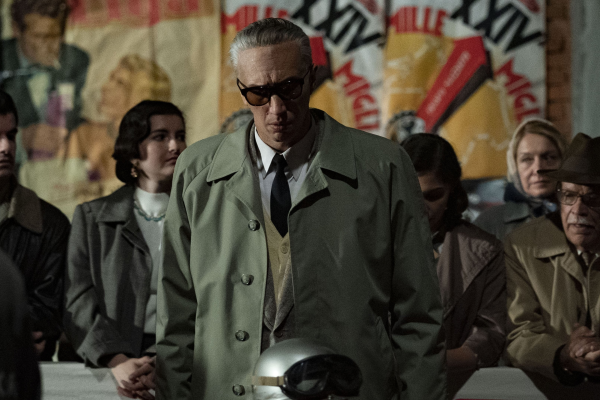
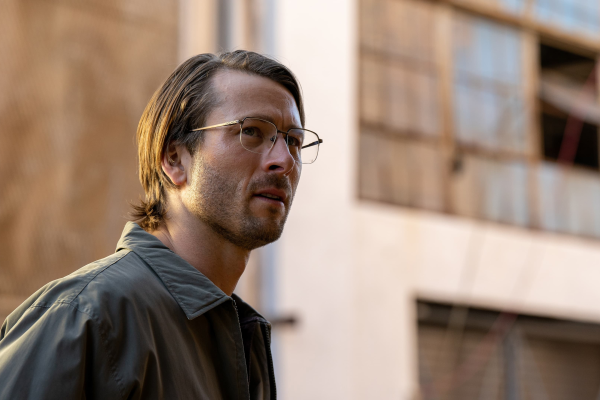
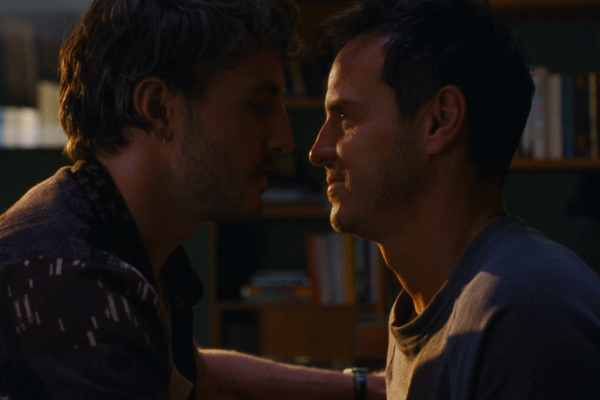
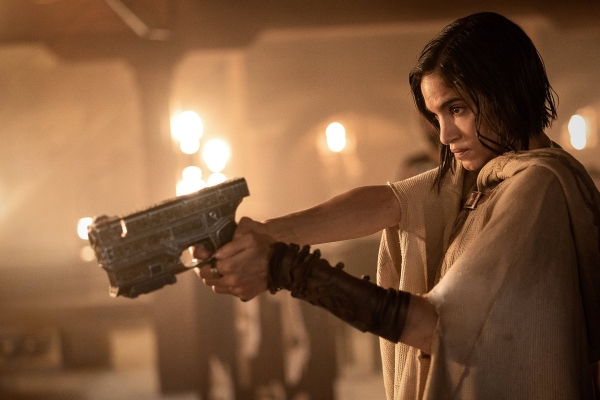
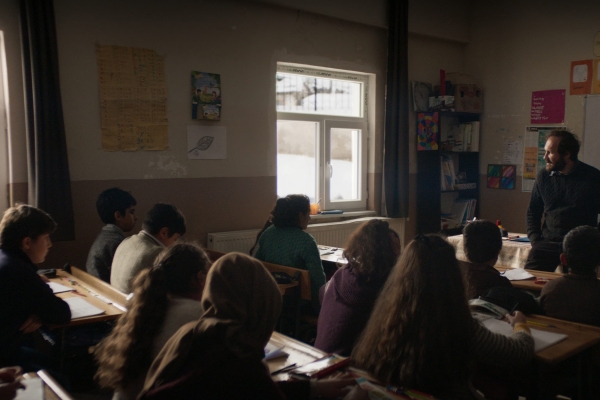

[…] actually love this movie; as I said in my review, it’s strangled by some uninspired cinematography and editing in contrast to the original […]
LikeLike